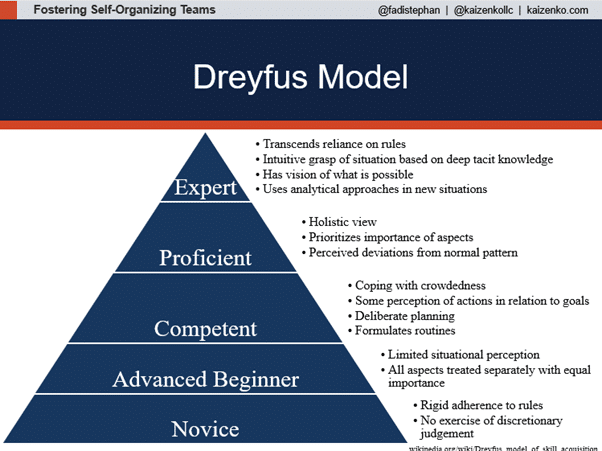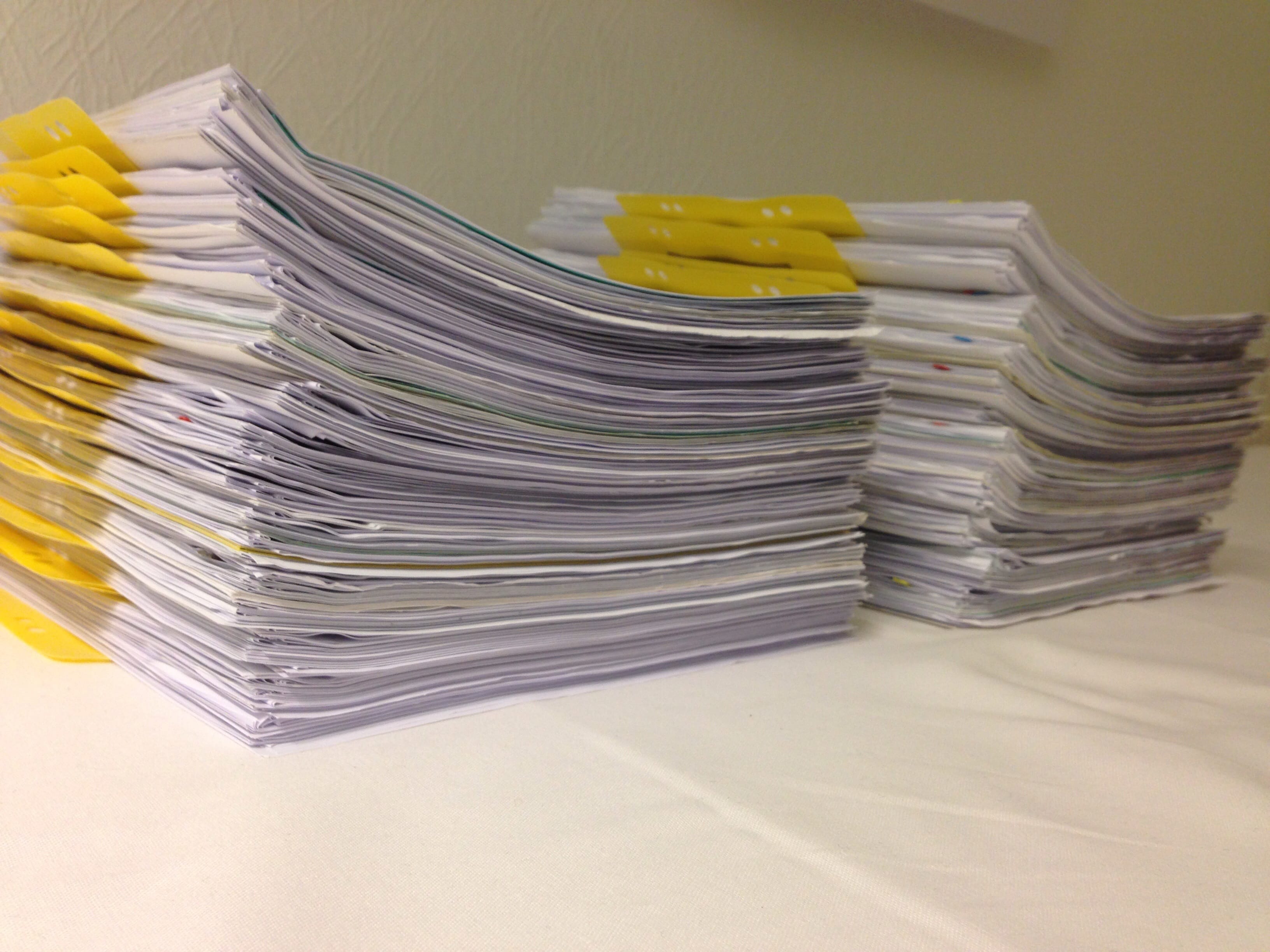The SME Interview: Segue to Knowledge Transfer
August 5, 2024
The saying “To be the best, you must learn from the best” rings as true today as ever, and who better to learn from than a Subject Matter Expert (SME)?
That, however, is much easier said than done.
What exactly are subject matter experts?
SMEs are either academics or business practitioners in all kinds of disciplines and industries. They have extensive theoretical knowledge and/or practical experience in one or more fields or occupations, such as AI and Knowledge Engineering, Organizational Development, Marketing, and Industrial Psychology, among others.
SMEs can also be low to highly skilled employees with years of experience. They utilize this cumulative experience to streamline their daily activities and processes efficiently.
These employees demonstrate high levels of commitment and discretionary effort, adding tons of value to their organizations. Their deep understanding of their subjects and practices makes them—and therefore their time—extremely valuable. They are considered a scarce resource.
It’s important to remember that all SMEs started off as novices. A great conceptual framework for understanding how SMEs develop is to examine their skill acquisition process through the lens of the Dreyfus Model below:

Whether through formal or informal education and training, observation, or on-the-job practical experience, SMEs have refined the processes involved in their craft down to a T. There’s no one better to consult if you want to replicate or implement similar processes and procedures in your business, or in one of its departments.
Most companies have their own resident or internal SMEs but may sometimes need to recruit expertise or collaborate with external consultant SMEs.
How do SMEs help businesses?
Very broadly, when a SME is approached by a business, they are generally asked to apply their expertise to evaluating the business’s existing operations, processes, and performance. They are good at simplifying complex processes and concepts, making them clear and more palatable.
Because of their expertise, SMEs intuitively solve complex problems. They identify technical and other solutions to improve performance, possibly provide training and mentorship, and assist in developing best practices and process documentation by drawing on their specialized knowledge.
They may also recommend implementing new techniques and technologies to improve productivity. In addition, they are great at contextualizing issues by using real-life examples that show how to overcome problems.
In some cases, SMEs will oversee the development and implementation of new protocols, processes, and procedures, and make any adjustments necessary. They may also help senior stakeholders to develop metrics and KPIs (Key Performance Indicators) to measure performance against any new strategies and ensure new projects stay on track.
SMEs are especially helpful when opening a new business. Regardless of how good you are at planning, a new business comes with a host of unexpected daily challenges. Utilizing SMEs during set-up can help level out a steep learning curve, as they advise you on likely problems you will face and how best to deal with them.
Securing Interview Buy-In
When asked, from the internal SME’s perspective, how he prioritizes the interviews he agrees to give, Erik Mudge, Principal Engineer at Red Engineering said:
This greatly depends on my workload and the complexity of the specific issue being addressed. My expertise is often needed for small, one-off questions, which I always try to answer as soon as possible. I find this kind of quick response is usually the most valuable for the interviewer, as this provides a framework for them to do their own research and forms the basis for them to expand their own knowledge, from which I also take satisfaction because I've helped them to attain a new skill or ability. For longer, more complex issues, it would come down to availability, and would usually schedule interviews per my and the interviewer's diaries. I would expect the interviewer to be well prepared and, if they aren't, would encourage the interviewer to reschedule with me once they have done further research on their own.
SMEs are not created overnight. In fact, It takes a lot of effort over a long period of time to graduate to SME status. All SMEs are conscious of this, and they pride themselves on their hard work over the years. This also, unfortunately, means that they may be reserved with their knowledge or skills, and can be very selective about whom they choose to share their expertise with.
Internal or resident SMEs can also be very reluctant to share information if they believe their specialized knowledge makes them indispensable. Working with external consultant SMEs is straightforward: You simply pay them for their time and input. But how do you convince your internal SMEs to be interviewed?
The owner and Senior Editor of The Writers for Hire, Wintress Odom, says:
“There is an art to approaching both external and internal SMEs, and knowing what motivates them is key. Theoretically, you would think that internal SMEs would talk to you, but that is not always the case because they don’t necessarily care about the project; all they want to do is their job because that’s what they enjoy doing. I enjoy sharing my knowledge as a SME with budding writers right out of high school or college. In fact, I am happy to help anyone If my schedule allows me to.”
There are several ethical approaches to getting SMEs to talk. A universally accepted truth is that an individual’s quality of life is connected to their income, which means you probably can’t go wrong with some sort of financial incentive in exchange for the interview. These incentives can be in the form of a spot bonus, a pay-for-performance initiative, or even a project profit-sharing agreement.
Fortunately, you do have other options if your budget doesn’t allow for financially incentivizing SMEs. Most workers aspire to achieve snazzily-titled, high-ranking jobs with more autonomy and responsibilities, so a promotion may just be the key to securing SME interview collaboration.
Additionally, most employees highly value their status within their company and amongst their peers—a fact that can be leveraged. Naming a SME as lead on a project will establish them as an authority, give them a sense of accomplishment, and, ideally, make them more amenable to interviews.
All workers appreciate a good work-life balance, so other very effective non-monetary ways to incentivize interview collaboration are to offer the SMEs additional holidays, allow them to work from home a couple of days a week if possible, or perhaps offer reduced or flexible working hours.
If you are not keen on the incentive route, there are several great arguments you can present to your SMEs to cultivate cooperation. One is that if the company succeeds, they too succeed with the company. Or encourage their team spirit—it is great for overall company morale if everyone is a team player who collaborates in sharing their knowledge and ideas.
Mudge adds: “Quite often, the people that interview me would be members of my team, working on the same projects that I do. It is therefore in my best interest for them to be as well informed as possible, as their performance would reflect on my reputation.”
You can bring to your SMEs’ attention that any specialized input on projects looks great on a CV, resume, or portfolio, and that you will include their assistance on any projects in any future referral or recommendation letters, should they ever need them.
A final and most important argument is that working closely with senior stakeholders on these specialized projects can be a great opportunity for the SME to learn even more, gain new skills, and further develop, personally and professionally.
The Interview and Knowledge Transfer Process

Before you interview a SME, there is considerable planning involved in the structure and execution of the interview.
First, establish what information you already have about the specific area of the business you want to improve, and where the gaps in knowledge are that you need the SME to fill.
Remember, you are not the expert on the topic, but you must be able to lead and guide the interview. Below are some tips for planning and structuring your SME interviews to ensure optimal knowledge transfer.
Arrange a mutually convenient date, time, and location.
In order to get the most from your SME, you want to make the interviewing process as convenient and relaxed as possible.
You want to allow the SME some decision-making and agency in the process, and this starts by providing them with the choice of a few dates and times that may work best for them.
Define the interview topic, goals, and estimated timeframe.
This step is for both you and your SME to prepare for the interview. By making the topic and the goals of the interview clear, both you and the interviewee can mentally prepare and stay on topic during the interview. Throwing your SME into the deep end and overwhelming them with unexpected questions can be very counterproductive.
Although it’s not the best idea to establish a fixed interview time duration, giving your SME an estimated time frame is imperative. Do not exceed the maximum amount of time you have allocated—this is unprofessional and can lead the SME to refuse to be interviewed again in the future.
“Personally, for me, it is really hard to get in deep and get good information in less than an hour,” says Odom.
Good practice would be to draft an interview agenda, ideally with the main questions included, and to give the interviewee a copy in advance. In a nutshell, the more information the SME has about the interview upfront, the more seamless the process will be.
Open questions are great, but TED questions are better.
Although some unplanned questions will inevitably result from your conversation with the SME, it is still imperative to prepare the main questions you want to ask in advance. The purpose of the interview is to gain new knowledge from the SME, which is unlikely to happen through a closed questioning technique.
An example of a closed question is “Do you like working for the company?” The answer is either yes or no.
Instead, open-ended questions are better for these types of interviews, as they require more detailed responses. An open-question example could be “Why do you like working for the company?” This question clearly demands multiple reasons and therefore more information.
TED is the acronym for Tell, Explain and Describe questions, and a combination of Open and TED questions are really what you should be asking during your SME interview. Some examples of TED questions include:
- Tell me what you mean by that.
- Explain your reasoning behind that approach.
- Describe in detail a different process you would implement.
Use the 80/20 and active listening techniques.
You and the SME may hit it off because you have a lot in common, which could lead to conversations not relevant to the purpose of the interview. Keep this in mind during the interview and ensure that 80 percent of the interview time is allocated to the SME for speaking. The interviewer should use the other 20 percent only for questions and clarifications.
Use active listening during the interview. This involves being fully present and focused on the conversation, picking up on non-verbal cues, reflecting on what was said, and withholding any judgments or comments until you have a clear mental picture.
Other active listening techniques include maintaining eye contact and using confirmatory phrases such as “very good,” “I agree,” and “I see.”
Check that you understand what the SME is saying.
During the interview, your SME may use language, terms, or even acronyms that you as the novice may not be familiar with. For instance, in addition to Subject Matter Expert, SME is also used as an acronym for Small and Medium Sized Enterprises, Sony Music Entertainment, and Society of Manufacturing Engineers.
It is part of your role as the interviewer to get clarity on the language used, and ensure that any technical concepts, ideas, and processes are explained in simple terms. A very effective way to do this is by explaining back to the SME how you interpret what they have said and confirming that your interpretation is correct.
-Wintress Odom, Owner of The Writers For Hire
Take copious notes.
You have three options when it comes to recording your interview with the SME. The first two are either to record the conversation on a mobile phone or other device and transcribe the recording afterward, or to take notes as you go. It is very important to remember that there are strict recording consent laws that apply at both the federal and state level, and it’s always best to get the SME’s consent.
Odom says: “We record all of our interviews, but most of our interviews are internal so we don’t have to worry about any legal repercussions. A handful of our clients have some additional security precautions that require us to destroy the recordings afterward.”
Mudge adds: “I am completely comfortable with any interview being recorded, as long as the recordings are used only for the purpose of the study or project.”
The third option is to have a dedicated notetaker in the interview. This can leave you to focus on asking the questions and guide the interview where it needs to go. Just introduce the notetaker to the SME and explain their purpose in the room or on the call.
When asked what advice she has on how best to approach the interviewing process, Odom says:
“I read an article once saying that it was statistically proven that judges always hand out the worst sentences just before lunch because they are “hangry,” so try and schedule your interview at a good time of the day. Do prepare for your interview, get some background on the topic, and do some research. I see many new interviewers get overly obsessed with details such as the correct spelling of a word, so, if you have the time to talk to someone, don’t ask those questions that can easily be clarified after the interview. Keep it big picture and use your verbal talk time wisely.”
Engineer your knowledge transfer systems.
Once you are satisfied with the information you have captured during the interview, the real work begins.
Make a list of everyone to whom this information must be transferred. According to Forbes, knowledge transfer is about getting the right information to the right people at exactly the right time. In an article on the subject, the publication lists the following six steps for effective knowledge transfer:
- Create formal documents that clearly outline how a specific process works.
- Cross-train to mitigate the risk of losing critical knowledge in the instance where an employee leaves your company.
- Provide formal training to upskill everyone who needs to work on the project.
- Use technological systems such as cloud-based storage to capture and store critical information.
- Create informal knowledge-sharing opportunities where your workers can exchange information and build organic networks.
- If working with an external SME, ensure the knowledge is transferred to the right people immediately after consultation to avoid any information getting lost in translation.
Specialized Process Documentation
In very simple terms, specialized process documentation is when companies create step-by-step descriptions and instructions on how to deliver and execute specialized processes, such as a recruitment process, from start to finish.

These documents can be drafted in a plethora of formats such as flow charts, checklists, policies, user manuals, and Standard Operating Procedures (SOPs).
These documented processes are especially critical for companies that experience exponential growth, which translates into more jobs, more people, more vendors, complex supply chains and infrastructure, and more customers to keep happy.
Even individuals with superior higher-order cognition will not be able to memorize and recall all the complex business processes necessary for efficient operation.
So, what are the benefits of process documentation?
In addition to streamlining processes, process documents are great training tools, and they help retain internal company knowledge. They are also essential for ensuring operational consistency and compliance across the business. Should you want to sell your business in the future, you may be more likely to find a high-bidding buyer if your business comes with these “user manuals.”
Whatfix.com recommends following these six steps when you start your specialized process documentation process:
- Define the process and the extent to which you want it documented. You must have a clear idea of the purpose, benefits, and outcome of creating the document. Get input from all the stakeholders involved in the design and execution of the document, set a due date, and decide how you will measure the success of the document.
- Depending on its complexity, either appoint one person, or a team of people to research and collect all the information relating to this specific business process.
- Create a visual outline or framework for the document.
- Use simple language when drafting the written document to ensure everyone in the business can use it to train themselves quickly and easily.
- Test the document and get feedback from stakeholders.
- Ensure the document is easy to access online or on the company intranet.
In Summary
There are no better sources of knowledge to utilize than Subject Matter Experts when you have to streamline existing processes or introduce new ones. There are several effective financial and non-financial incentives you can use in an effort to secure a SME interview.
The interview must be done at the SME’s convenience and be well-structured to ensure optimal knowledge capture and transfer. The hard work begins once you have captured knowledge from the SME.
This knowledge must be quickly translated into comprehensible specialized process documents to ensure nothing gets lost in translation. It is critical to have a knowledge transfer system in place to communicate any new process documents as needed.
Specialized process documentation can be very complex and time-consuming. It may be a good idea to involve a writing agency at the start, from the interviewing stage right through the production of the documents.































